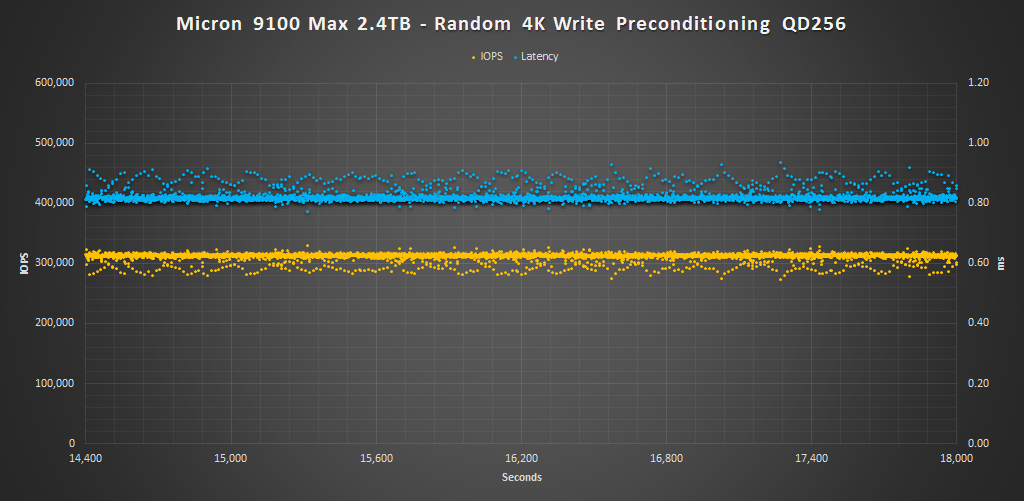4KB RANDOM READ/WRITE
In order to properly test random 4KB performance we first secure erase to get it in a clean state. Next, the drive is filled by sequentially writing to the RAW NAND capacity twice. We then precondition the drive with 4KB random writes at QD256 until the drive is in a steady state. Finally, we cycle through QD1-256 for 5 minutes each for writes and then reads. All this is scripted to run with no breaks in between. The last hour of preconditioning, the average IOPS, and average latency for each QD is graphed below.
With this closer look at our preconditioning data, we see while the average 4K write latency at QD256 is about 0.82ms at average and the average IOPS is about 300K. In terms of the consistency, we can see that the 9100 MAX has a very tight distribution that doesn’t vary more than 0.15ms or 10K IOPS. This is very impressive so far.
During 4K reads we can see that the Micron 9100 MAX is very comparable to other SSDs sharing the same controller, but is slightly beat out from QD8-64. At the higher QDs, however, it is second only to the dual controller Intel DC P3608. These results are reflected when looking at latency. Up to QD128 the latency remains below 0.2ms and peaks at just under 0.35ms at QD256.
The 4K write results show the 9100 MAX to be the absolute fastest in the pack by a large margin. Similar to the other SSDs with the same controller, QD1-2 performance is slower than that of the Intel DC P3700, but from QD4 and on it takes the lead against all with ease. Latency is even below 1ms all the way up to QD256, which is very impressive.
 The SSD Review The Worlds Dedicated SSD Education and Review Resource |
The SSD Review The Worlds Dedicated SSD Education and Review Resource | 

